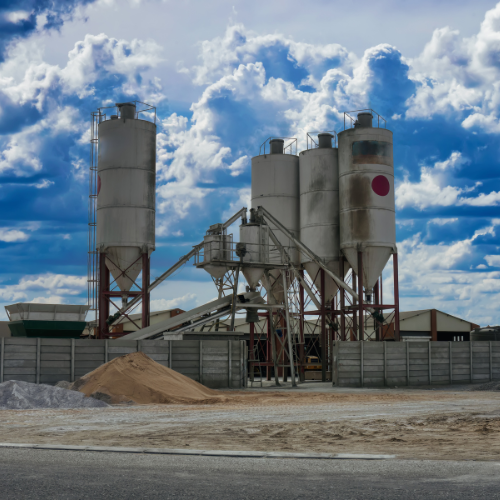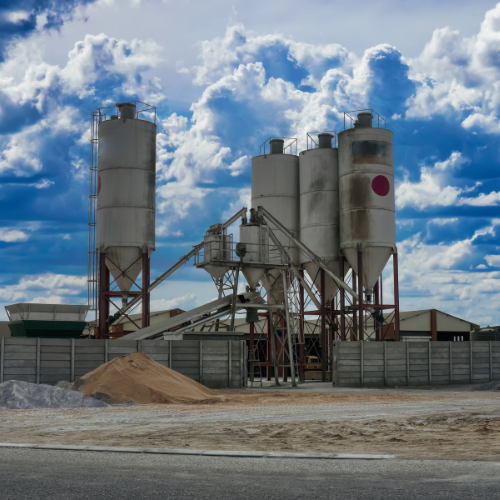Knowledge Hub
Types of Silos for Storage: Tower Silos vs Bag Silos

What are Silos and Why are they Important?
Silos are indispensable structures in industries such as agriculture, food processing and manufacturing. Their primary role is to store bulk materials securely while preserving their quality and preventing loss. From grains to industrial materials like cement, silos are designed to protect contents from environmental factors such as moisture, pests and temperature fluctuations.
Choosing the right silo type is not just about capacity it also involves understanding material compatibility, cost implications and operational convenience. This article explores the key types of silos, exploring their structure, function and suitability for various applications.
Tower Silos
What are Tower Silos?
Tower silos are one of the most easily recognisable bulk material storage systems. Their tall, cylindrical structures are often visible on farms and industrial sites. Typically constructed from materials such as steel or other metals, modern tower silos are designed to store bulk materials compactly while making optimal use of space. These structures can range in size, catering to both modest farm requirements and large-scale industrial needs.
How Do Tower Silos Work?
Tower silos utilise gravity for bulk material handling, a feature that simplifies both loading and unloading. Materials are typically deposited into the top of the silo through conveyor belts, augers or pneumatic systems. Inside, gravity compresses the contents, further optimising storage space.
Unloading is equally streamlined. Materials are drawn from the bottom using augers, air slides or conveyor systems, ensuring quick access without the need for manual intervention. These features make tower silos particularly effective for grains, cement and other granular products.
Advantages of Tower Silos
- Tower silos are ideal for operations with limited ground space, thanks to their vertical design.
- The enclosed structure ensures excellent protection against environmental factors like rain, wind and pests, safeguarding the quality of stored materials.

Bag Silos
What are Bag Silos?
Bag silos represent a flexible and cost-effective storage option, particularly favoured for temporary or mobile needs. These silos are essentially large, flexible bags made from polyethylene, capable of holding large quantities of material.
Their size and portability make them an excellent choice for operators seeking scalable storage solutions. Unlike permanent silos, bag silos are not tied to one location, offering adaptability in various settings.
How Do Bag Silos Work?
Filling a bag silo involves specialised machinery that compresses and seals materials inside the tube. Once filled, the silo remains airtight, preserving the contents from spoilage or contamination.
This method is particularly advantageous for grains and fodder, allowing operators to store materials efficiently in remote or infrastructure-limited locations. The bags can be easily accessed, with contents removed incrementally or all at once, depending on operational needs.
Advantages of Bag Silos
- Bag silos are cost-efficient, requiring minimal investment compared to permanent structures.
- Their portability allows users to establish storage facilities wherever they are needed, adding significant flexibility.
- Bag Silos require less space than Tower Silos, particularly useful in facilities with limited space.

Which Silo is the Most Cost-Effective?
Cost-effectiveness varies depending on the scale and nature of operations. For small-scale or temporary storage, bag silos offer an affordable solution with low initial investment. However, their shorter lifespan can make them less economical in the long run.
On the other hand, tower silos, while expensive to construct, provide long-term savings through durability and operational efficiency, making them a worthwhile investment for larger operations.
Which Silo is the Most Cost-Effective?
Storage capacity depends on the type of silo and the material being stored:
- Tower Silos: Tower silos excel in making efficient use of vertical space, perfect for areas with limited land.
- Bag Silos: Bag silos offer scalable capacity, adapting easily to fluctuating storage requirements.
Which Silo is Best for Different Materials?
Selecting the right silo type requires consideration of the materials being stored:
- Tower Silos: Ideal for grains/seeds or industrial products requiring long-term storage and protection.
- Bag Silos: Best suited for temporary storage of grains and fodder, especially in remote or infrastructure-limited areas.
